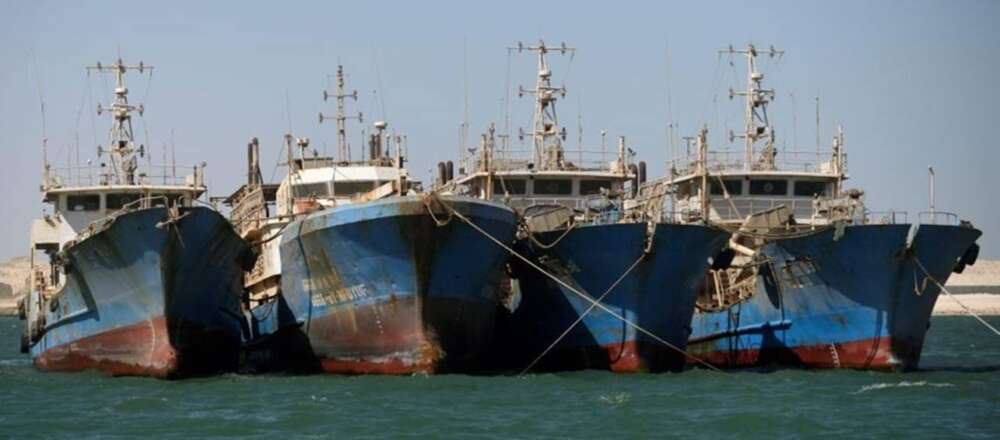The UN Food and Agriculture Organization (FAO) estimates that 12.3 million people work in fisheries in Africa, including over 7.5 million men and 2.3 million women in artisanal fisheries. The FAO reports that fish accounts for an average of 22% of protein intake in sub-Saharan Africa; in some countries this level exceeds 50%. This means that the sector contributes ‘strongly’ to food and nutritional security.
In Senegal, the management of the raw material [fish], mainly small pelagics, remains an issue for professionals in the sector. This is why, in 2015, the Association for the Promotion and Empowerment of Artisanal Fisheries Actors in Mbour (APRAPAM) discussed the management and future of this resource at its fifth forum.
The President of APRAPAM underlined that small pelagics are the basis for almost all the actors and professionals of artisanal fishing in the country and even other actors in the sub-region. This makes this resource, according to Gaoussou Gueye, a strategic commodity and an economic and social “food and nutritional safety net”.
What about threats to small pelagics?
It is for this reason that APRAPAM believes that in the current situation of the fisheries sector in Senegal, this theme must be revisited and proposes it as the central topic of its Fifth Forum on “The challenges of exploiting and developing pelagic resources and their place in food and nutritional security: the voice of professionals”: This is why APRAPAM believes that in the current situation of the fisheries sector in Senegal, this theme must be revisited and proposes it, as the central topic of its fifth forum, which is entitled: “The challenges of the exploitation and development of pelagic resources and their place in food and nutritional security: the voice of the professionals”.
Rather, in 2012, APRAPAM produced a memorandum in which it noted that: “There are no more fish than there were in the early 2000s when Senegal decided to stop fishing by European Vessels and refused any foreign activity on pelagic fish. It was unfair to impose the fishing pressure of the huge Russian vessels on these resources in 2011 and it is right that the new authorities blocked these “authorizations” in 2012.
Despite this warning, the threat is still present and pressing, it is useful to clarify some concepts and situations that can be sources of confusion, advises APRAPAM. This statement was supported during the 2014 forum, during which, it is recalled one of the conclusions of the work of the FAO-COPACE Working Group which informs that: “for small pelagic, existing data, developed at the regional level show the overexploitation of the sardinella, no access should be given by Senegal for these strategic resources for food and nutritional security.
The Secretary General of the UPAMES, addressing the consequences of the problem linked to the exploitation of small pelagic by foreign vessels, explained that: “Pelagic such as horse mackerel, sardinella but also the belt constitute the most important part of the products fished by foreign vessels and therefore compete directly with African companies which are supplied up to 90% by artisanal fisheries.
Stakeholder issues
Following this situation, Mrs. Tenning NDIAYE, a women-processor from Joal fadiouth, expressed her concern about the overcapacity of fishermen and the overcapacity of the equipment that targets small pelagics, mainly sardinella (round and flat). “This excessive pressure on these resources has led to the overexploitation of these species. This excessive pressure on these resources has led fishermen, who in their desire to make a profit, but also because of a particularly high demand from certain foreign operators, to practice irresponsible fishing methods, in particular the fishing of juveniles, which inevitably contributes to the decimation of the species,” notes the report of the fifth forum.
In addition, sardinella meal plants (mainly flour) have been set up at the landing sites of artisanal fisheries, accentuating the scarcity of these resources, which constitute the main raw material for women processors.
Bayaty BABOU, who was in charge of fisheries and maritime affairs at the Mbour city hall (at that time), believes that “the absence or even the scarcity of these pelagic products would create imbalances in the economic activity of the city and/or the department”. He invited “the authorities in charge of fishing to develop policies that would preserve this resource and that in this respect, “it would be desirable that fishing agreements with foreign partners do not include pelagic fishing. »
Furthermore, Matar THIAM made recommendations on the need to reserve the exploitation and marketing of small pelagics to nationals, and invited the actors to work on the value chain to improve the quality of the products offered for a better in situ products valuing of small pelagics. In the opinion of Mr. THIAM, it will be a question of “developing a synergy along the value chain between African artisanal fishing and local industries to finance and modernize the capture and processing of these pelagics. »
He also invited the actors and professionals of the artisanal fishing sector “to work for the safeguard of this resource, by practising responsible fishing, avoiding any use of prohibited gear, any waste, in particular the landing of juveniles, which would be beneficial and profitable to all“.
A summary by Aliou DIALLO
CAOPA Communication Officer


